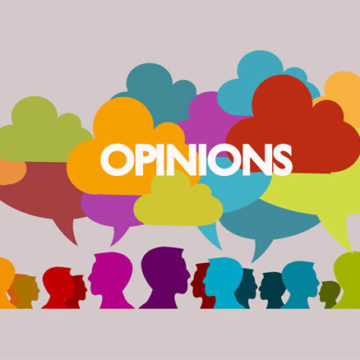

DONALD Trump’s potential re-election would likely have far-reaching consequences for the world, African nations, and most importantly, Nigeria. As a businessman, Trump’s first term showcased his economic prowess, with improved domestic economics in the US. His track record on international relations is more complex, with notable successes and a great deal of controversies. In the Middle East for instance, Trump’s stance on the Middle East is shaped by his “maximum pressure” approach to Iran, strong opposition to diplomacy over a nuclear deal, and a focus on energy and economic policy cooperation. He has also expressed support for Israel, recognizing the Golan Heights as Israeli territory and relocating the US Embassy to Jerusalem. With Abraham Accords, Trump brokered historic peace agreements between Israel and Arab nations, including the UAE, Bahrain, and Morocco, reducing tensions in the region. He surgically catalysed ISIS Defeat. Trump’s administration played a significant role in defeating ISIS, a major terrorist organization. Concerning Ukraine-Russia Conflict, Trump’s presidency coincided with a relative calm in the conflict, with Putin hesitant to further invade Ukraine. However, with the election, there are far-reaching potential consequences of a Trump’s Second Term:
There is no doubt that there would be escalation of tensions with Iran: Trump’s hardline stance on Iran could lead to increased tensions and potential conflict. Invariably, there is going to be a continued support for Israel, Trump would likely maintain strong ties with Israel, potentially exacerbating Palestinian-Israeli tensions. Undoubtedly, global economic impact would be great. Trump’s economic policies, including tariffs and sanctions, could have significant effects on global trade and economies. As regards African Nations, there is no doubt that Trump’s administration would not prioritize Africa, as could be seen from his previous term in office and his proposed budget cuts for the Department of State and USAID were significant, at 28%. Therefore, there was a drastic decline in Development Assistance to African nations. The proposed budget cuts would have reduced funding for development programs, potentially undermining efforts to promote economic growth and stability. Trump’s withdrawal from the Paris Agreement had significant implications for Africa, which is highly vulnerable to climate change despite contributing relatively little to global emissions. It’s worth noting that Trump’s policies were not entirely novel, as they built upon existing initiatives and programs established by previous administrations. However, his approach was distinct in its emphasis on security and transactional bilateral relationships over multilateral cooperation and development assistance.

Trump’s policies would likely have varying impacts on African nations, depending on their relationships with the US and the Middle East. Countries with strong ties to the US, such as Egypt, might benefit from Trump’s stance on regional security. However, nations with significant trade relationships with Iran or China might face challenges. During his first term, the Trump administration’s impact on Nigeria was largely focused on security and countering China’s influence in the region. During his visit to Nigeria in March 2018, Secretary of State Rex Tillerson emphasized the importance of combating extremist groups, particularly Boko Haram. Therefore, the U.S. was committed to providing additional aid to Nigeria and other African countries to fight famine and food insecurity, with a focus on conflict zones. The Trump administration at that time had recognized Nigeria’s crucial role in maintaining regional peace and fighting terrorism and that is as a result of Nigeria’s military being a key partner in containing Boko Haram, and the U.S. has provided significant military assistance to support these efforts. In fact, Trump’s policies in Africa were shaped by a security-focused lens, which was evident in his conversations with the presidents of Nigeria, Kenya, and South Africa. Therefore, during his presidency, the U.S. has deployed troops to counter al-Shabaab in East Africa and sold an unprecedented $593 million worth of highly needed military equipment to Nigeria to combat and defeat Boko Haram terrorist group. But while security was a primary focus, the Trump administration also acknowledged Nigeria’s economic importance.
Nigeria is among the top five African markets for U.S. goods, and the U.S. is one of Nigeria’s largest trade partners. However, the administration’s “America First” approach and economic nationalism may have limited opportunities for increased trade and investment at that time and more likely to be the case again. It can be argued that the Trump administration’s focus on security and militarization during his first term may have overshadowed other important aspects of U.S.-Nigeria relations, such as democracy, governance, and economic development. Additionally, therefore, it is believed that the administration’s immigration policies and protectionist stance may have strained relations with Nigeria and other African countries. Overall, the Trump administration’s impact on Nigeria was shaped by its broader Africa policy priorities, which emphasized security, counter-terrorism, and competition with China at the expense of more crucial economic issues that could have been more favourable to Nigeria. Interestingly for instance, under Trump the U.S. gets most of its imported oil from Canada, and not from the Middle East or Africa or more significantly Nigeria like other government in the White House, pre-Obama’s era. In fact, Canada’s share of total U.S. crude oil imports reached a record high of 61% in 2020, reducing drastically the US importation of oil from the Middle East and Africa. Although, Trump’s oil imports from Africa aren’t well-documented, but we do know that during his presidency, the U.S. reduced drastically a significant amount of its import of petroleum from African nations.
Donald Trump’s energy policy, particularly in relation to Africa and Nigeria, focuses on promoting fossil fuels and reducing regulations. His administration supports increasing domestic oil and gas production, which could impact global energy markets, including those in Africa and Nigeria ¹.
Key aspects of trump’s energy policy
He lays much emphasis on Fossil Fuels. In fact, Trump’s policy prioritizes the development and use of fossil fuels, such as oil and natural gas, which could lead to increased competition for African and Nigerian energy markets.In the aspect of deregulation, Trump aims to reduce regulations on energy production, potentially making it easier for American companies to operate in Africa and Nigeria. And then in energy Independence, Trump’s policy emphasizes achieving energy independence for the United States, which could influence global energy dynamics and impact African and Nigerian energy exports.
While there isn’t specific information on Trump’s energy policy towards Africa and Nigeria, his overall energy strategy may have implications for these regions. For instance: increased American oil production could lead to reduced demand for African and Nigerian oil exports. While Trump’s emphasis on fossil fuels might influence global energy trends, potentially affecting Africa’s and Nigeria’s energy sectors. But then, overall, the Trump administration’s impact on Nigeria was shaped by its broader African policy priorities, which emphasized security, counter-terrorism, and competition with China. Considering the implications of a potential second Trump term on African nations, particularly Nigeria, is crucial. While I couldn’t find specific information on Trump’s policies towards Nigeria or Africa in my search results, I can provide some insights on the potential implications. A second Trump term could lead to increased protectionism and trade tensions, potentially affecting Nigeria’s economy, which relies heavily on international trade. Trump’s “America First” policy might lead to reduced US investment in Nigeria and other African countries.
In terms of global politics and cooperation, Trump’s stance on global cooperation and international institutions could impact Nigeria’s relationships with these organizations. A potential reduction in US contributions to global health initiatives, for example, might affect Nigeria’s access to vital healthcare programs. Nigeria’s energy sector, particularly oil production, might be impacted by Trump’s energy policies. Trump’s support for fossil fuels could lead to increased competition in the global oil market, potentially affecting Nigeria’s oil exports. Trump’s policies on security and counter-terrorism might influence Nigeria’s efforts to combat Boko Haram and other terrorist groups. A potential shift in US priorities could impact the level of support and cooperation Nigeria receives.
- Adebowale writes in from Port Harcourt, Rivers State.
READ ALSO: Bidens welcome Trumps to the White House








